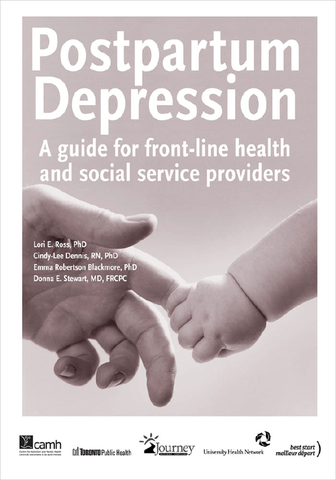Text adapted from: "Perinatal mood and anxiety disorders," in Psychiatry in primary care by Ariel K. Dalfen (CAMH, 2019).
When prescribing medication for women of childbearing age, consider the safety profile of the medication because many pregnancies are unplanned, and altering medications can thus be avoided to improve patient well-being. Generally, avoid valproic acid and carbamazepine with this population because these medications are largely contraindicated in pregnancy. Most other psychotropic medications can likely be used during pregnancy.
For women who are stable and at low risk of psychiatric relapse, a slow tapering off of psychotropic medication before pregnancy may be acceptable and desirable well before they intend to try to get pregnant. Offer these women non-pharmacological therapies and regularly monitor symptoms. Recent evidence indicates that cognitive-behavioural therapy (CBT) and interpersonal therapy can help to prevent perinatal illness in some women at risk.

Postpartum Depression: A guide for front-line health and social service providers
This book was specifically developed to meet the needs of front-line health and social service providers who work with women during pregnancy and the postpartum period. It provides a unique Canadian perspective and covers diversity issues in more depth than other resources.